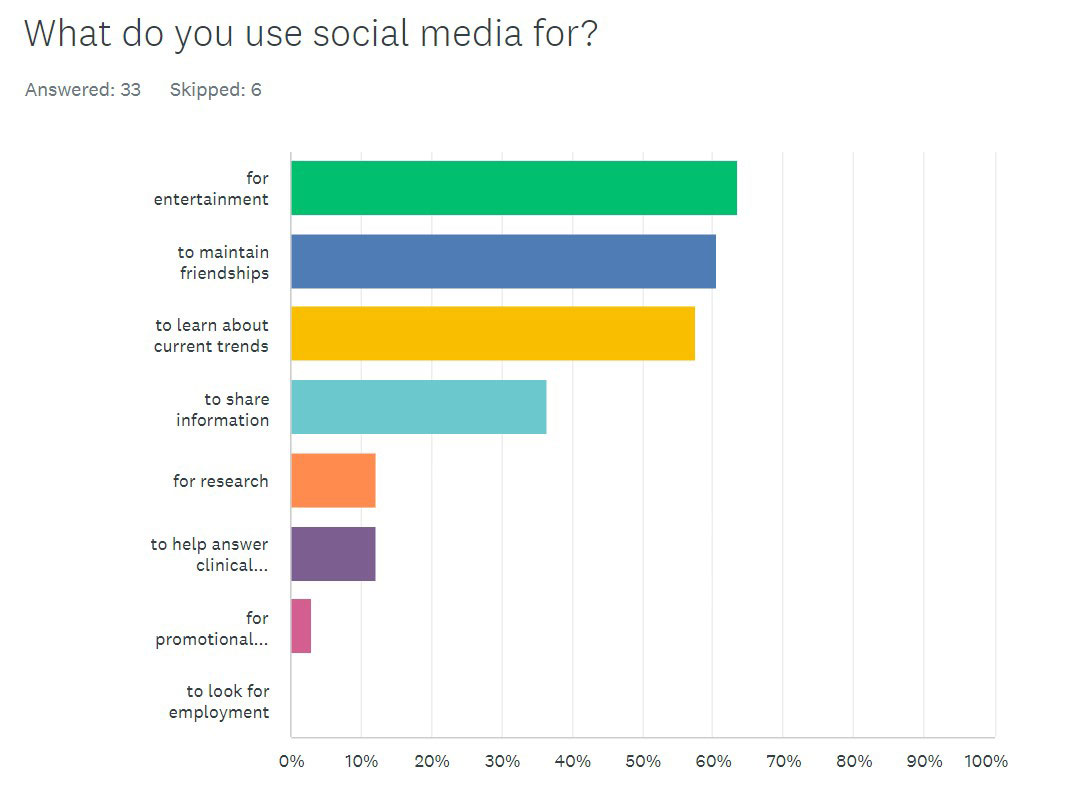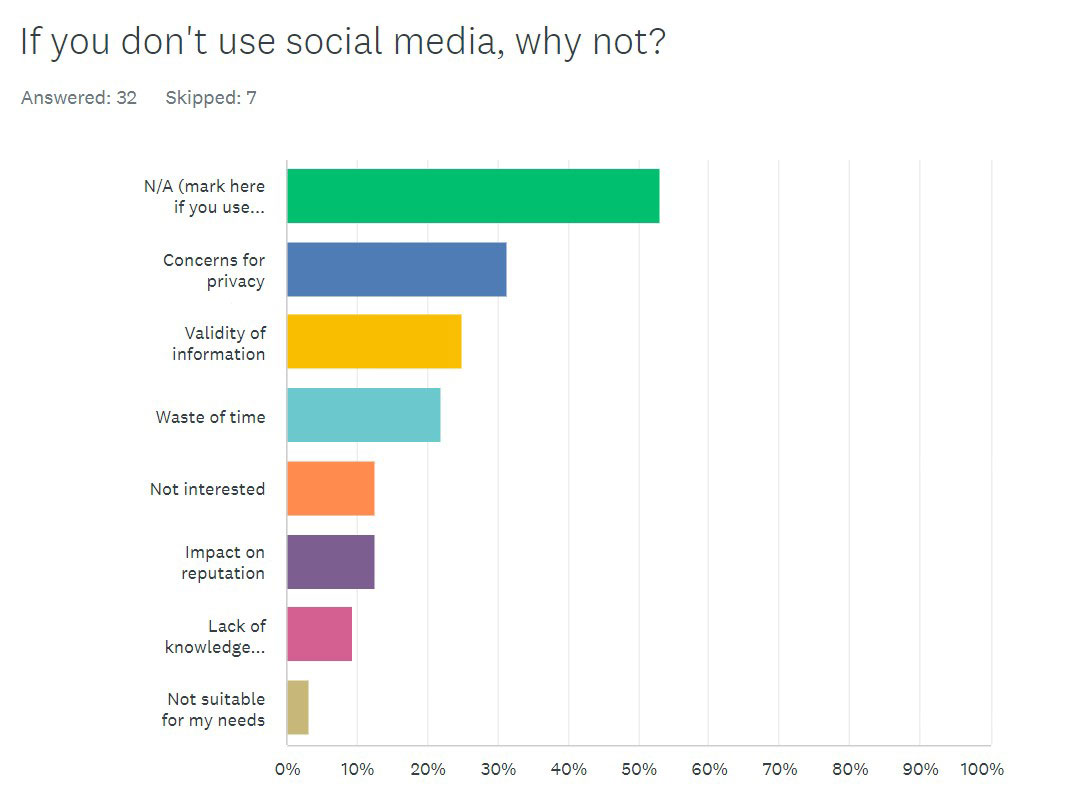Session Information
Session Type: Poster Session A
Session Time: 1:00PM-3:00PM
Background/Purpose: Social media (SM) in medicine has evolved to become mainstream, and its use encouraged in medical education, research, and clinical practice. SM can enhance instruction, improve visibility, and promote collaboration.1 It has been associated with improved knowledge, attitudes, and skills.2 Our study evaluated SM use among rheumatology professionals in a single academic center to identify specific practices, perceptions, and unmet needs for those navigating SM.
Methods: In February 2022, an online survey was emailed to healthcare professionals, researchers, and trainees in the UT Southwestern Rheumatic Diseases Division. Survey questions focused on demographics, types of SM use, reasons for use, and beliefs about SM. Descriptive statistics were used to analyze the results.
Results: The survey was sent to 82 recipients. Of the 39 respondents, 32% were over 50 years old, 37% were aged 40-50 years, 29% aged 30-40 years, and <3% were under 30 years of age. 64% were clinical practitioners, 10% researchers, and 18% were trainees. 68% reported using SM. Facebook was the platform used most regularly (59%), followed by Twitter (38%). Of those on Twitter, 43% were aged 30-40 years. The top 3 reasons for SM usage were for entertainment (64%), to maintain friendships (61%), and to learn about current trends (58%) (Figure 1). While 84% believed SM has a role in education (Figure 2), only 33% have used SM to enhance their medical education and less than 25% have used it for research or for professional development. 77% of those who have used SM for medical education were clinicians, and the majority were under 50 years old. 59% rated their proficiency with SM as good, and 33% rated their proficiency as fair. Of those who do not use SM, reasons for not using SM included concerns for privacy (31%), validity of information (25%), and perceived waste of time (22%) (Figure 3).
Conclusion: Medical professionals are increasingly using SM to advance their careers and to keep abreast of current events and trends. While many rheumatologists, researchers, and trainees in our academic center support the role SM has in medicine, few use it to enhance their medical education or for professional development. Our study highlights the need for training and guidance on how to increase proficiency and incorporate SM into medical education. Encouraging the use of SM in rheumatology may promote learning, advance advocacy, and expand collaboration. Further research on identifying barriers to SM in academia is needed.
References:
- Chan TM et al. Systems to support scholarly social media. doi:10.36834/cmej.72490
- Cheston CC et al. Social media use in medical education. doi:10.1097/ACM.0b013e31828ffc23
To cite this abstract in AMA style:
Lim J, Dao K. Social Media Use in Academic Rheumatology [abstract]. Arthritis Rheumatol. 2022; 74 (suppl 9). https://acrabstracts.org/abstract/social-media-use-in-academic-rheumatology/. Accessed .« Back to ACR Convergence 2022
ACR Meeting Abstracts - https://acrabstracts.org/abstract/social-media-use-in-academic-rheumatology/



